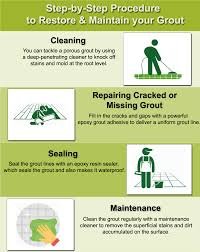The obituary pages of the South Wales Evening Post are far more than a mere announcement of deaths. In the communities of south-west Wales — Swansea, Neath, Port Talbot, Carmarthenshire and beyond — they serve as a deeply human forum: recording loss, celebrating lives lived, and linking generations through memory.
What the Obituary Section Offers
First, the basics: this section provides vital information about the deceased — name, age, date of passing, funeral or memorial arrangements and often a short life-summary. It allows families to inform the wider community of their loss, enabling friends, acquaintances and former colleagues to pay respects.
Secondly, and importantly, it offers remembrance. Personal stories, anecdotes, community involvement, military service, professional accomplishments and family relationships often appear in these notices. In turn, they help preserve local history: the lives of coal-miners, shop-keepers, veterans, community activists, artists and families find space here. For example, there was a tribute to a Second World War veteran, Idwal Davies BEM of Llanelli, who died aged 98 and whose community involvement was detailed.
Thirdly, the obituary section helps provide closure. Listing the service, the donations, the flowers, the funeral venue — these details allow the community to join in commemorating the person, even if they cannot attend in person.
A Brief Look at the Evening Post’s Heritage
The South Wales Evening Post was founded in 1893 (initially as the South Wales Daily Post) and later took its current title. It is a regional daily based in Swansea and serves a broad area across south-west Wales. The obituary section has grown in importance as a public record and as a socially significant feature of the paper.
Because of its local roots, the Evening Post’s obituary pages often reflect the particular character of the region: communities grounded in industry, maritime life, veterans, Welsh culture and tight-knit neighbourhood networks.
Why Obituaries Matter in the Community Context
In south-west Wales, where communities are often interwoven by family ties, shared history and common workplaces, the obituary section takes on additional significance.
-
Community memory: The recorded lives become part of the collective memory. They recall the histories of towns, villages, industries and the people who shaped them.
-
Intergenerational connection: Younger readers may discover family names, local veterans, community groups referenced in an obituary and thereby feel a connection to their region’s past.
-
Legacy of service: Many notices highlight longstanding public service: military veterans, local campaigners, charity volunteers, and professionals who contributed to local welfare.
-
Support for grieving families: Publishing the notice opens the doorway to condolences, attendance at services, and a broader circle of recognition beyond immediate family.
-
Historical record-keeping: Over time, these notices become a resource for genealogists, historians, researchers and local archives, showing death dates, family relationships, occupations and local affiliations. In fact, external commentary on the Evening Post emphasises this archival value.
Modern Trends and Features
Compared with obituary notices of earlier decades — which tended to be short and formal — the Evening Post’s modern obituary offerings are often more personalised. They may include:
-
Photographs of the deceased.
-
Quotes or reflections from family members.
-
Mention of favourite hobbies, club memberships, volunteer work.
-
Broader information about memorial or celebration services (rather than strictly funeral notices).
-
Online supplements or archives allowing extended tributes (“In Memoriam” notices) long after the funeral.
Another trend: funeral directors now frequently facilitate placement of notices in the paper as part of their service. One funeral‐home guide lists the Evening Post as an option for death notices and memorials.
How to Use the Obituary Section Effectively
For families and for readers, there are a few practical tips to make the most of the obituary section:
-
Provide full, accurate details when placing a notice: legal name, date of death, residence, immediate family, service arrangements.
-
Include biographical highlights: service in the armed forces, community work, long memberships, special achievements. These help personalise the tribute.
-
Consider photograph inclusion if permitted by the paper; a picture strengthens the connection for readers.
-
Submit early: deadlines matter, especially around holidays when publication schedules alter. For example, the Evening Post lists a non-publishing date around Christmas Day.
-
Check for add-ons: many obituaries invite donations rather than flowers, or point to memorial funds. This info is useful for readers.
-
Search past notices: readers looking for family history, memorial anniversaries or past community figures can use searchable archives or index services that list thousands of notices (for example: death notices, In Memoriam, funeral reports).
-
Respect sensitivity: obituary notices are published for grieving families, so punctuation of names, spelling and dates should be carefully checked.
Challenges & Considerations
While the obituary section is immensely valuable, there are challenges:
-
Cost: inclusion of photos, extended text or special placement may incur extra fees, which can limit what some families can afford.
-
Access: not all past notices may be free to view online; older records might require library archives or subscriptions.
-
Coverage bias: like many regional papers, the Evening Post’s coverage may still reflect who can afford notice space, so some community members may be under-represented.
-
Emotional complexity: for readers, an obituary is both a tribute and a trigger of grief. Sensitivity in tone matters.
-
Space constraints: newspapers have limited space; some notices may be shorter than desired, or edited down.
Case Examples
-
Veteran’s life of service – A tribute to Idwal Davies BEM of Llanelli, 98, noted his wartime service, authorship (proceeds to charity), local Salvation Army involvement and recognition by the Royal British Legion. His obituary captures a full life lived and remembered by community.
-
Journalist’s legacy – Another example: the passing of Paul Chambert (76), a long-serving figure at the Evening Post itself. His obituary underlines how the paper also records its own workforce and heritage.
-
General family notice platform – The online forum “Funeral-Notices.co.uk” lists hundreds of thousands of death and in-memoriams for the Evening Post, showing how large the volume is and how many families use the paper to share their loss.
The Broader Significance
Obituaries in the Evening Post perform a dual function: personal and public. On a personal level, they help individual families memorialise loved ones. On a public level, they knit together the social fabric of south-west Wales: reminding readers of shared heritage, communal values, historic change and local identity.
For you, as someone concerned with SEO and writing for audience value, the obituary section provides rich narrative material: names, dates, affiliations, local institutions, historical context — all of which can be woven into local-interest content, memorial features, genealogical stories or culture-heritage write-ups. The key is to emphasise value for readers: respect for the deceased, recognition of contribution, community connection, and accessible memory.
Final Thoughts
The obituary pages of the South Wales Evening Post serve as a vital civic record. They are not just lists of names, but portals to lives touched by community, service, industry and family. In a world where online memorialisation is growing, the paper-based notice remains a cornerstone of local remembrance in south-west Wales.
Whether you are a reader reversed to browsing funeral notices, a family preparing to submit one, or a writer looking for local colour and authentic story-material, these pages speak of lives that mattered, of community bonds, of endings and the stories that live on.
Respecting that legacy means writing with dignity, clarity and heart — exactly what good obituary content should always reflect.











